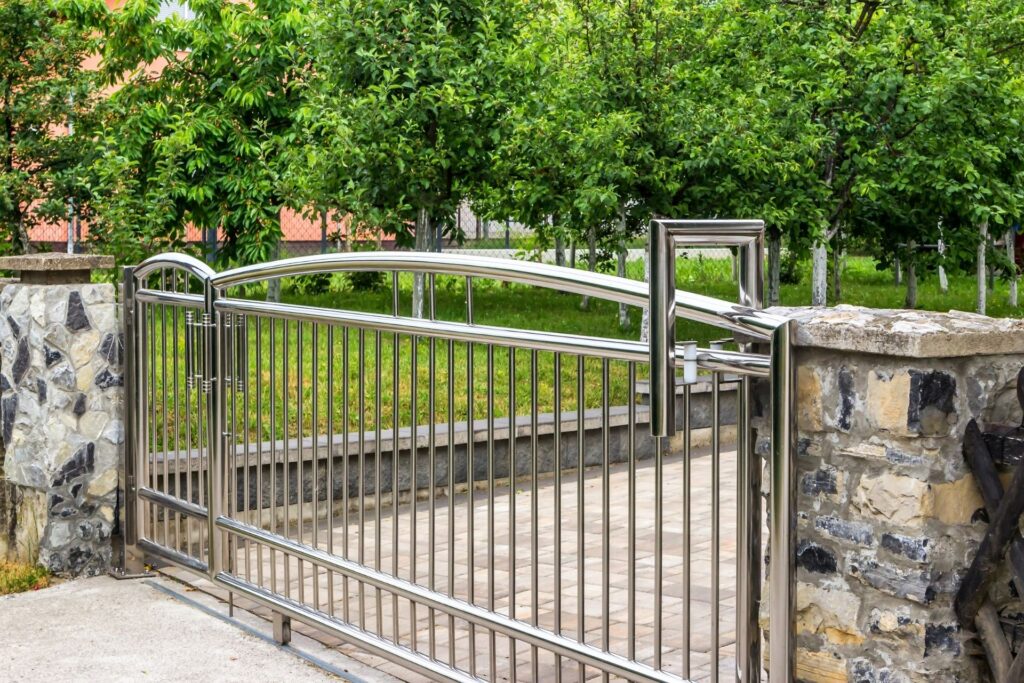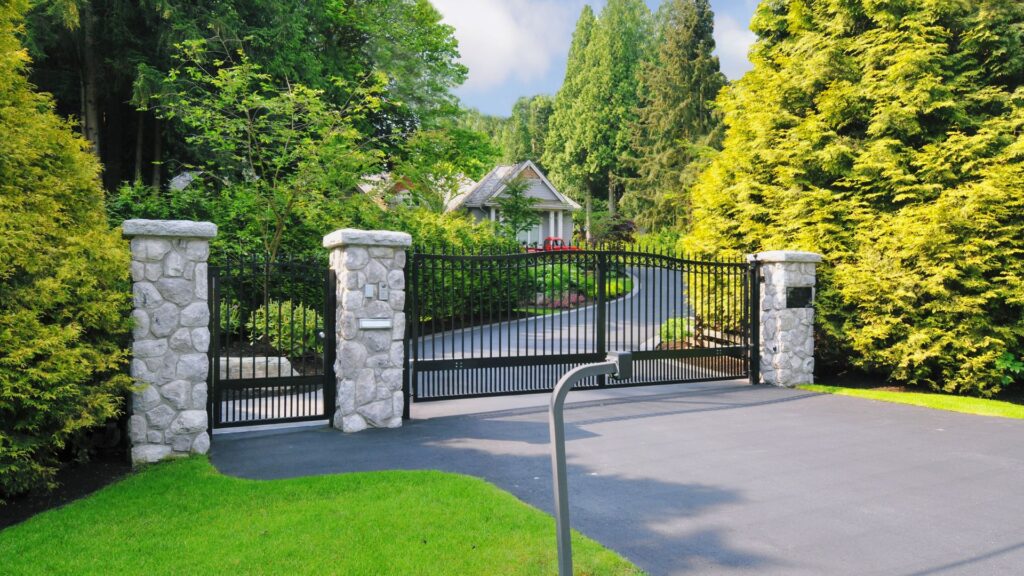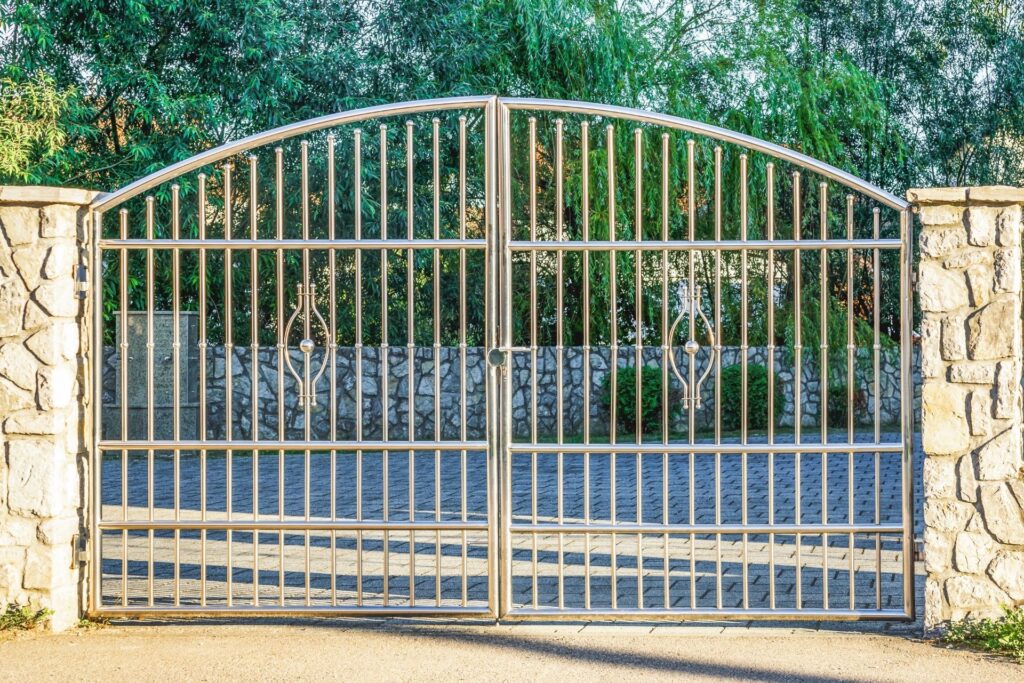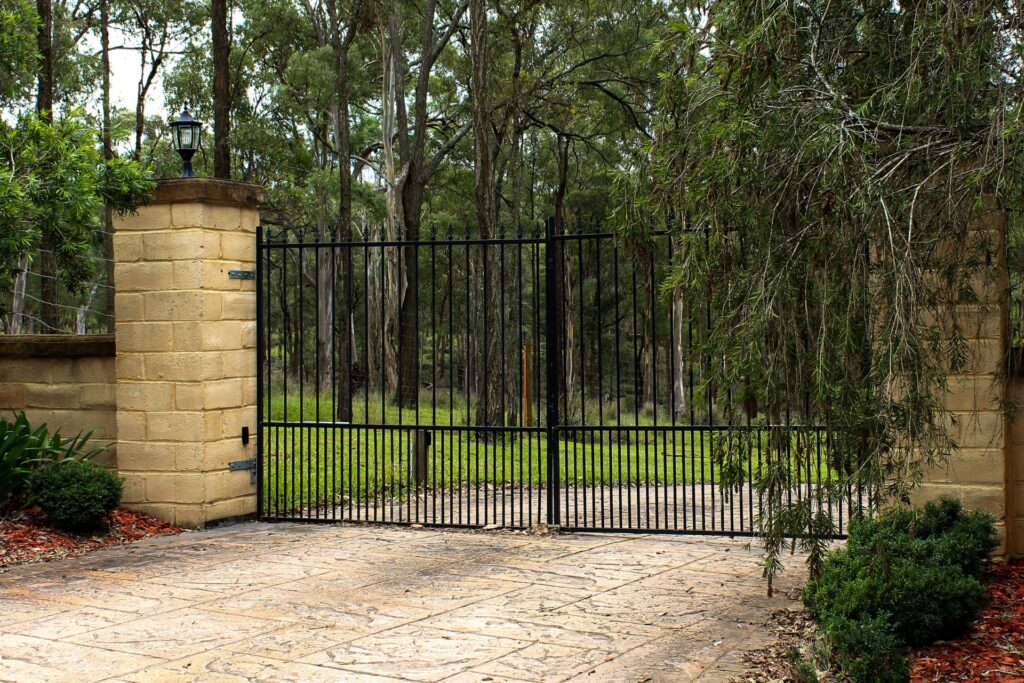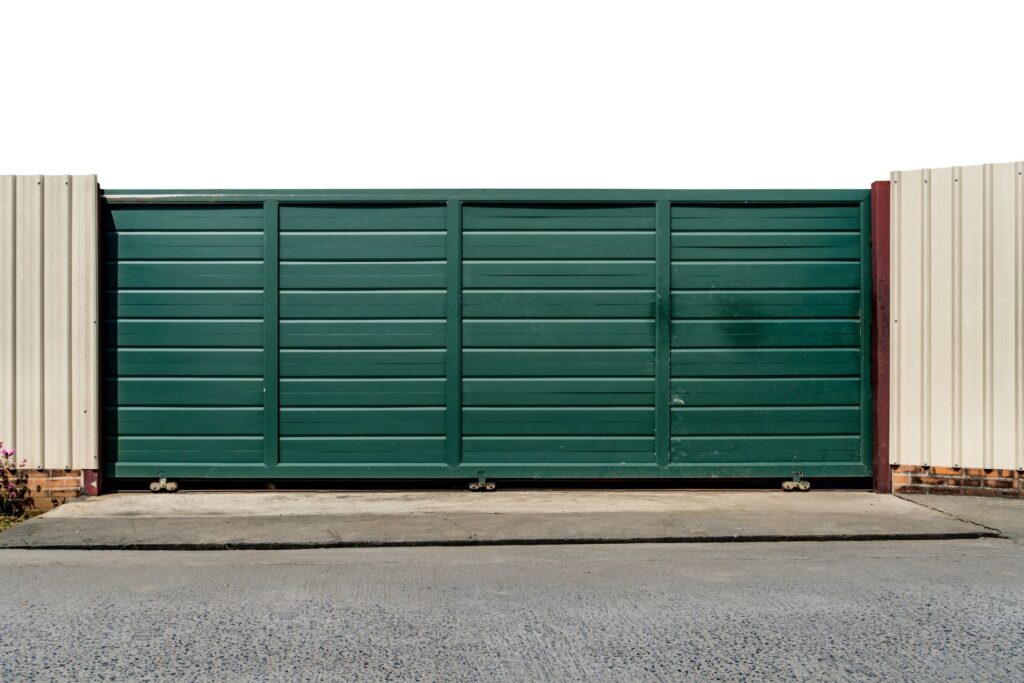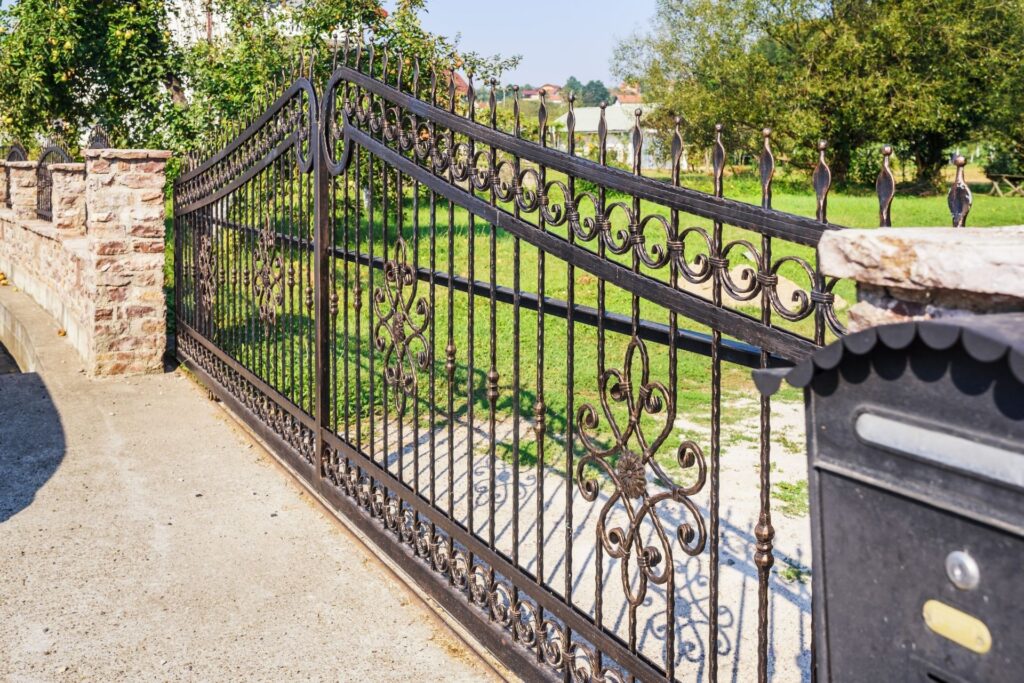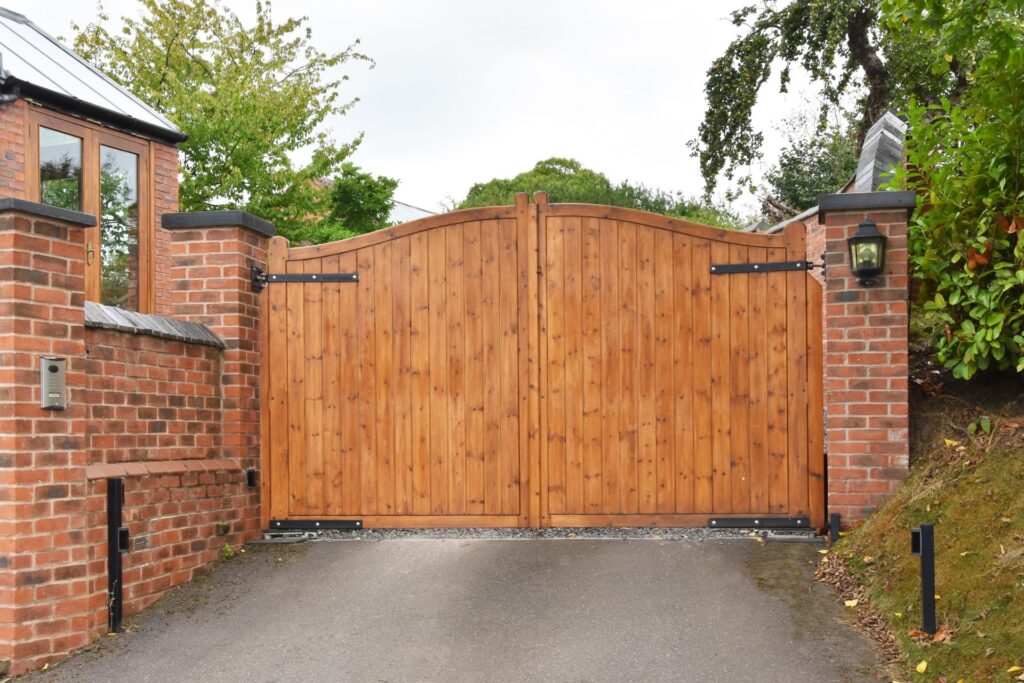Welcome to our guide on affordable driveway gates in New Zealand, where we explore how to enhance your home’s security, privacy, and curb appeal without breaking the bank. Whether you’re looking for a stylish addition to your property or a practical solution to keep your space secure, driveway gates are a popular choice for Kiwi homeowners. This blog will walk you through everything you need to know—from the types of gates available to key considerations, cost-effective options, and maintenance tips—helping you make an informed decision that fits your budget and lifestyle. Let’s dive in and find the perfect gate for your driveway!
Affordable driveway gates can enhance your home’s security, privacy, and curb appeal without overspending. Popular options include swing gates, sliding gates, and manual or automatic designs, with materials like wood, aluminum, or steel offering a balance of durability and cost-effectiveness. Explore local suppliers, online marketplaces like Trade Me, or DIY solutions to find the perfect driveway gate that fits your budget and needs.
Table of Contents
Why Driveway Gates Are Essential For NZ Homes
Driveway gates serve as more than just a functional addition to your property—they provide a range of benefits that cater to the unique needs of homeowners in New Zealand. From improving security to adding aesthetic appeal, here’s why driveway gates have become a must-have for many Kiwi homes.
Security Benefits
One of the primary reasons homeowners invest in driveway gates is to enhance security. Gates act as a physical barrier, deterring theft and unauthorized access to your property. Whether you live in a busy urban area or a quiet rural setting, a driveway gate adds an extra layer of protection, giving you peace of mind. For families, gates can help ensure children and pets remain safely within the property, especially if you’re near a busy road. In New Zealand, where lifestyle properties and remote homes are common, a secure driveway gate can be the first line of defense against unwanted visitors.
Privacy Enhancement
In addition to security, driveway gates offer a sense of privacy that’s hard to achieve otherwise. They create a boundary between your home and the outside world, shielding you from prying eyes or passersby. This is particularly important for families who value their personal space or for those living in high-traffic areas where pedestrian and vehicle activity might be constant. By installing a driveway gate, you can control who enters your property, ensuring that your home remains a haven of peace and quiet.
Aesthetic Appeal
Driveway gates are not just about function—they also play a significant role in enhancing your property’s visual appeal. A well-chosen gate can complement your home’s architectural style and landscape design, creating a cohesive and inviting look. Whether you prefer the timeless charm of a wooden gate or the modern sleekness of aluminum or steel, there are countless options to suit your taste. For many NZ homeowners, a beautifully designed driveway gate serves as a statement piece, boosting the overall curb appeal of their property.
Increase in Property Value
Installing a driveway gate can be a worthwhile investment, as it often increases the value of your home. Prospective buyers see gates as a desirable feature, especially in New Zealand’s competitive real estate market. A driveway gate signals that the property is secure, private, and well-maintained—all factors that can make your home stand out. For lifestyle properties in rural areas, gates are particularly appealing, as they align with the demand for practical, secure solutions for larger plots of land.
Fun Fact:
Driveway gates are especially popular in New Zealand’s rural areas for securing lifestyle properties, where they’re used to keep livestock in and unwanted visitors out, all while adding charm to the property.
Driveway gates are more than just a practical addition—they’re a smart choice for enhancing security, privacy, and aesthetic appeal while also increasing your property’s value. Whether you live in a bustling city or a tranquil rural area, investing in a driveway gate is a decision that delivers long-term benefits for your home and family.
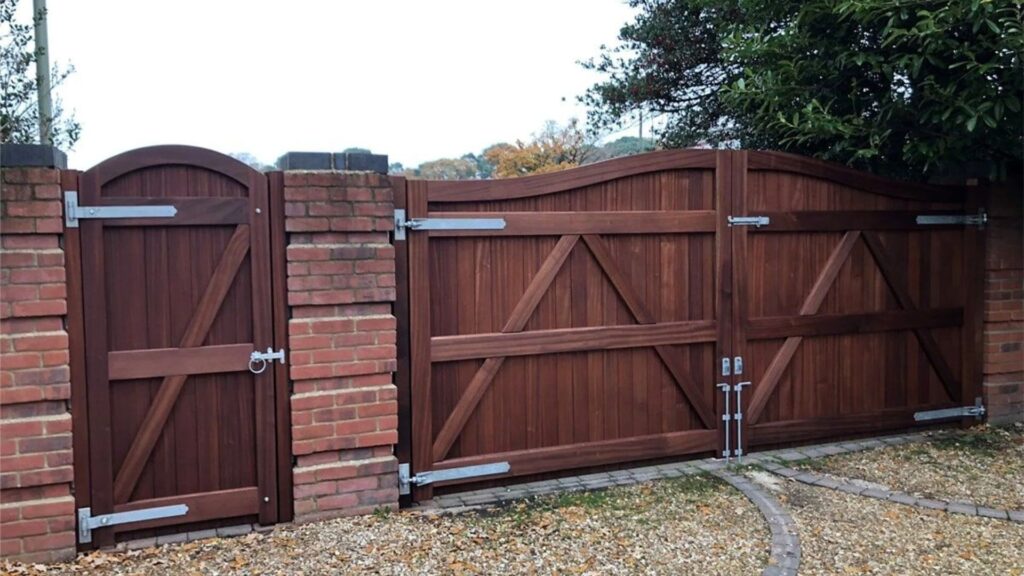
Types Of Affordable Driveway Gates In NZ
When choosing a driveway gate in New Zealand, balancing affordability and quality is key. With various options available, it’s essential to understand their features, benefits, and suitability for your needs. Below, we break down the most popular types of driveway gates to help you make an informed decision.
Swing Gates
Description: Swing gates are a classic choice for driveway entry. They operate on a simple mechanism where the gate swings inward or outward, much like a door. These gates are available in single or double-leaf designs, depending on the width of your driveway.
Pros and Cons:
- Pros: Swing gates are easy to operate, highly customizable, and have an elegant aesthetic. They are ideal for rural or suburban properties with ample space.
- Cons: These gates require a significant amount of clearance to open fully, making them less practical for driveways with limited space or steep inclines.
Cost Considerations:
Swing gates are versatile in terms of materials. Wooden swing gates tend to be cost-effective and visually appealing but require regular maintenance to prevent rot or warping. Steel swing gates, on the other hand, are more durable but can be pricier upfront. Aluminum is another great option as it balances affordability with low maintenance.
Suitability:
Swing gates are best suited for properties with larger, flat driveways where there is enough space for the gate to open freely without obstruction.
Sliding Gates
Description: Sliding gates are perfect for driveways with limited space. Rather than swinging open, these gates slide along a track, parallel to the fence or boundary. This makes them an excellent option for urban areas where space is at a premium.
Cost Advantages:
Sliding gates can be surprisingly cost-effective for smaller properties, especially when made from lightweight materials like aluminum or vinyl. While the track mechanism may add to the initial cost, the long-term durability and low maintenance often offset this.
Installation Details:
Sliding gates require a sturdy track and rollers for smooth operation. Proper installation is critical to ensure longevity and ease of use, especially in areas with uneven ground. These gates are highly durable and are less affected by wind or weather conditions compared to swing gates.
Suitability:
Sliding gates are ideal for narrow driveways, properties with steep inclines, or areas where space behind the gate is limited.
Manual vs. Automatic Gates
Manual Gates:
For homeowners on a budget, manual gates are a cost-effective solution. They operate without any electrical components, making them cheaper to install and maintain. However, they do require physical effort to open and close, which may be inconvenient for larger or more frequently used driveways.
Automatic Gates:
Automatic gates offer unparalleled convenience and modern appeal. Operated with a remote or keypad, these gates eliminate the need for manual handling, especially during adverse weather conditions. While they have a higher initial cost due to the motor and control systems, the ease of use and added security often make them worth the investment.
Choosing Between Manual and Automatic:
Manual gates are ideal for smaller properties or secondary entrances, while automatic gates are better suited for high-traffic driveways or those prioritizing convenience and security.
Material Choices
Selecting the right material for your driveway gate is crucial for balancing affordability, durability, and aesthetics. Here are the most common materials to consider:
1. Wood:
Wooden gates provide a natural and timeless look, making them a popular choice for traditional or rustic homes. They are often one of the more affordable options upfront, but they require regular maintenance, such as sealing or painting, to prevent damage from New Zealand’s varying weather conditions.
2. Aluminum:
Aluminum gates are lightweight, rust-resistant, and highly durable, making them ideal for NZ’s coastal regions. They are more affordable than steel and require minimal upkeep, making them a great long-term investment.
3. Steel:
Steel gates are the strongest and most secure option, offering maximum protection for your property. However, they tend to be more expensive and may require periodic rust-proof treatments, especially in humid or coastal areas.
4. Vinyl:
Vinyl gates are an excellent budget-friendly alternative. They are lightweight, easy to install, and require virtually no maintenance. While they may not be as strong as steel or wood, vinyl gates are a practical option for low-security needs or aesthetic purposes.
By understanding the various types, costs, and materials of driveway gates, you can choose an option that suits your budget, complements your home, and meets your specific needs. Whether you prefer the traditional charm of a swing gate or the space-saving efficiency of a sliding gate, affordable driveway gates in NZ offer a range of options to enhance your property.
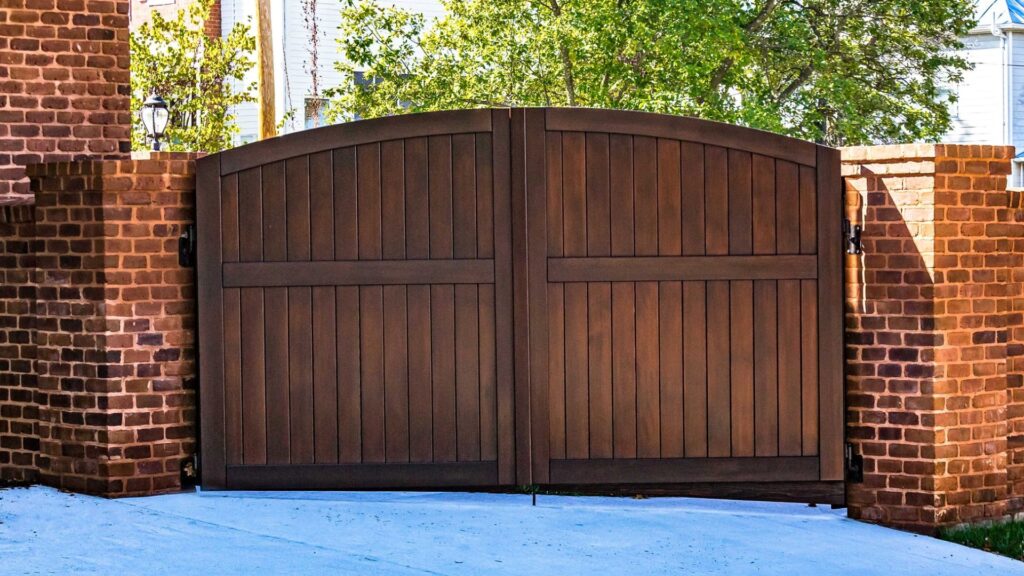
Key Considerations When Buying Cheap Driveway Gates
Choosing the right driveway gate for your home involves more than just picking the cheapest option on the market. While affordability is key, there are several practical factors to consider to ensure your investment adds value to your property and meets your needs. Below, we explore these considerations in detail to help you make a well-informed decision.
Budget: Balancing Upfront Costs and Long-Term Value
When buying a driveway gate, it’s important to think beyond just the upfront cost. While it’s tempting to go for the cheapest option, consider the gate’s long-term durability and maintenance requirements.
- Initial Costs: Determine how much you’re willing to spend on the gate itself and whether installation costs are included. For instance, manual gates are typically cheaper than automatic ones, but they may require more effort to use.
- Long-Term Costs: Gates made from lower-cost materials, like untreated wood or basic steel, may need regular maintenance, such as painting, sealing, or rust-proofing. While these may be inexpensive at first, the ongoing upkeep can add up. On the other hand, materials like aluminum or vinyl, while slightly pricier upfront, tend to require minimal maintenance, offering better long-term value.
- Pro Tip: Always compare quotes from multiple suppliers and consider second-hand options or sales on platforms like Trade Me to stretch your budget without compromising on quality.
Driveway Size and Shape: Finding the Perfect Fit
The size and shape of your driveway play a significant role in determining the type of gate that will work best. Installing a gate that doesn’t fit your space properly can lead to operational issues and additional costs.
- Measuring Your Space: Accurately measure the width of your driveway and the clearance available on either side. For swing gates, ensure there’s enough room for the gate to open fully without obstruction. For sliding gates, check if there’s sufficient space along the fence line for the gate to slide open.
- Driveway Slope: If your driveway is sloped, you’ll need a gate design that can accommodate the incline. Swing gates may require custom hinges, while sliding gates are often better suited for uneven surfaces.
- Pro Tip: Take photos and measurements to share with your supplier or installer—they can help you choose a gate that fits perfectly and functions seamlessly.
Climate and Maintenance: Preparing for NZ’s Weather Conditions
New Zealand’s diverse climate—ranging from coastal salt air to colder inland regions—means your gate must be built to withstand the elements. Choosing the right material can save you from frequent repairs and replacements.
- Coastal Areas: If you live near the coast, rust and corrosion are major concerns. Opt for materials like aluminum or powder-coated steel, which are resistant to salt air. Wooden gates, while attractive, may need extra sealing to protect against moisture and warping.
- Inland or Rural Areas: In regions with high rainfall or colder temperatures, materials like vinyl or treated wood can be good choices as they resist water damage and are easy to maintain.
- Ongoing Maintenance: To maximize your gate’s lifespan, clean it regularly, lubricate moving parts, and inspect for damage. A little preventative care goes a long way in keeping your gate functional and looking great.
Style and Functionality: Blending Form and Purpose
Your driveway gate is one of the first things people notice about your property, so it should reflect your home’s overall aesthetic while serving its primary purpose—security.
- Matching the Style: Whether you have a modern, minimalist home or a classic villa, choose a gate design that complements the architectural style of your property. For instance, sleek aluminum gates work well with contemporary homes, while decorative wrought iron gates add charm to traditional properties.
- Balancing Security and Aesthetics: While the gate’s appearance is important, it’s equally vital to prioritize functionality. For families, gates with added height and locking mechanisms provide extra security for children and pets. Automatic gates offer convenience, especially for those in high-traffic areas, while manual gates can be a cost-effective and stylish choice.
- Pro Tip: If in doubt, ask suppliers for recommendations based on your home’s style and your specific needs. Most reputable providers have design catalogs or customization options.
By carefully considering your budget, driveway specifications, local climate, and preferred style, you’ll be well on your way to choosing a driveway gate that not only fits your financial plan but also adds long-term value to your home. Always aim for a balance between cost, quality, and functionality to ensure your investment is a worthwhile one.
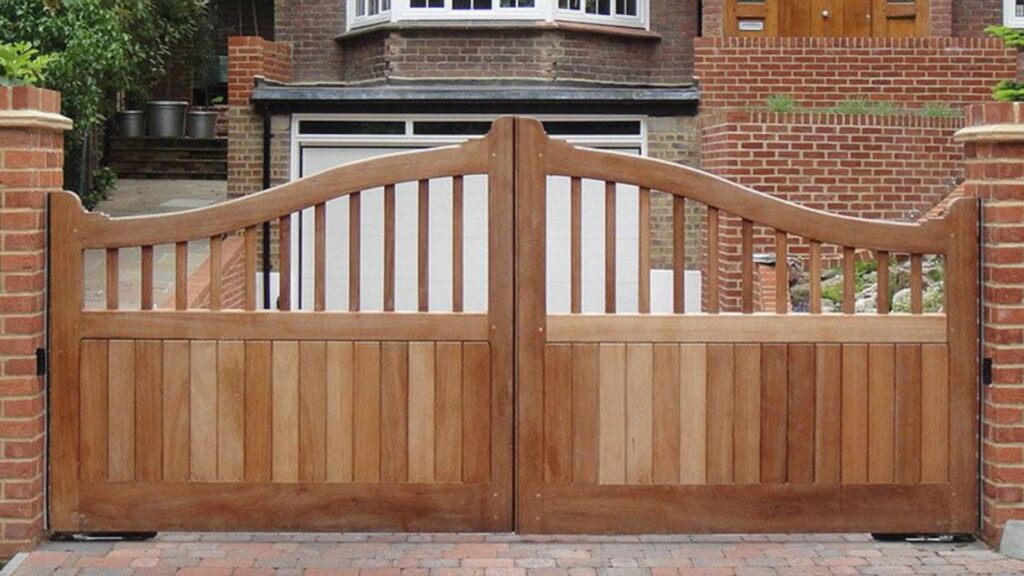
Where To Buy Cheap Driveway Gates In NZ
When it comes to finding affordable driveway gates in New Zealand, there are several great options to explore. Whether you prefer working with local suppliers, browsing online marketplaces, or even taking the DIY route, each option offers unique advantages. Below, we’ll dive into the best ways to secure a reliable and cost-effective driveway gate for your property.
Local Suppliers
One of the most reliable ways to purchase driveway gates in NZ is through local suppliers. These businesses often have a deep understanding of New Zealand’s unique needs, including weather conditions, regional building requirements, and aesthetic preferences. For instance, gates designed for coastal areas may use materials like aluminum or powder-coated steel to withstand corrosion, something a local supplier is likely to offer.
Another major advantage of buying locally is reduced shipping costs. Many NZ-based suppliers manufacture and stock gates nearby, meaning you avoid the hefty fees associated with international shipping. Plus, working with a local company often means quicker delivery times and easier communication if you need custom designs or additional support.
To find trusted local suppliers, check directories, customer reviews, or even ask for recommendations in community forums. Shopping locally not only supports New Zealand businesses but also ensures your gate aligns with local standards and preferences.
Online Marketplaces
If you’re looking for convenience and budget-friendly options, online marketplaces are an excellent choice. Platforms like Trade Me are popular in New Zealand for buying second-hand or discounted driveway gates. Many sellers offer a wide range of options, including pre-owned gates, clearance items, and surplus stock from suppliers, all at a fraction of the price of brand-new gates.
When shopping online, always pay attention to seller reviews, detailed product descriptions, and photos to ensure you’re getting a quality gate. Reach out to sellers to ask questions about the condition, size, and materials used, especially for second-hand items. Be prepared to arrange transportation if the seller does not offer delivery, particularly for larger gates.
In addition to Trade Me, some NZ-based online retailers specialize in affordable fencing and gates. These platforms often include customer testimonials and specifications to help you make an informed purchase.
DIY Options
For the ultimate cost-saving approach, consider building your own driveway gate. DIY gates are not only budget-friendly but also allow for a personalized design that suits your property’s unique needs. If you have basic woodworking or metalworking skills, you can create a sturdy and stylish gate for a fraction of the cost of a pre-made one.
DIY gates are particularly suitable for simple swing or sliding designs. Materials like treated wood, aluminum, or even repurposed materials can help keep costs low while ensuring durability. Many hardware stores in New Zealand stock gate kits and tools that make the process easier for first-time builders.
However, it’s important to consider your time and skill level. While DIY gates can save money upfront, mistakes or lack of experience can lead to higher long-term costs if the gate requires frequent repairs or fails to function properly. If you’re unsure about tackling the project on your own, consult online tutorials, join DIY forums, or even partner with a handyman to share the workload.
Pro Tip
Always compare quotes from multiple suppliers to find the best deal. Whether you’re buying from a local supplier, shopping online, or going the DIY route, take the time to evaluate all your options. This ensures you get a gate that fits your budget without compromising on quality or durability.
By exploring these options—local suppliers, online marketplaces, and DIY solutions—you’ll be well on your way to finding an affordable driveway gate in NZ that meets your needs and style preferences.
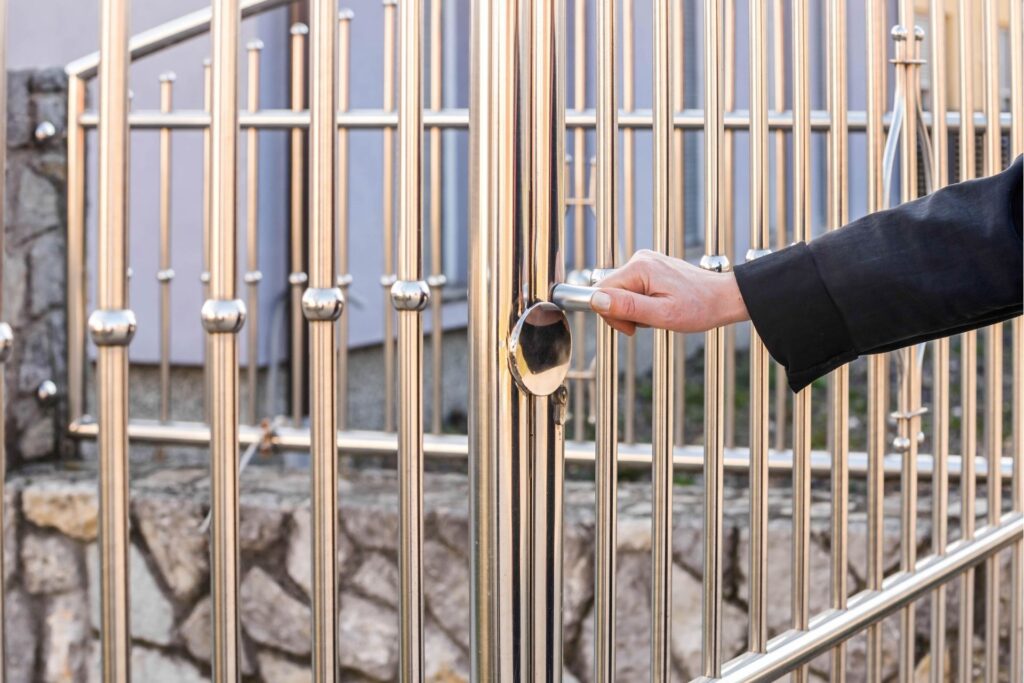
Installation Tips For Affordable Driveway Gates
Installing a driveway gate, whether DIY or through professional services, can be a rewarding project that enhances your home’s security and aesthetics. Below, we’ll dive into detailed tips to help you make the best decision based on your skills, budget, and goals.
DIY Installation: A Step-by-Step Guide for Homeowners
Installing a driveway gate yourself can save money and give you a sense of accomplishment. However, it requires proper planning, tools, and some handyman skills. Here’s a step-by-step guide to help you tackle the project:
- Measure and Plan
- Start by measuring the width and height of your driveway accurately. Make sure you account for clearance space for the gate to open and close smoothly.
- Choose a gate type (swing or sliding) that best suits the space and your needs. Sliding gates are ideal for narrow or sloped driveways, while swing gates work well for flat, open spaces.
- Prepare the Area
- Clear the driveway area of debris, rocks, or uneven surfaces. The installation site should be level to ensure the gate operates smoothly.
- Mark out the positions for the gateposts or track (if it’s a sliding gate).
- Install Gateposts or Track
- For swing gates, dig post holes deep enough to securely anchor the posts, ensuring stability. Use concrete to fix the posts in place and allow it to cure completely.
- For sliding gates, install the track along the driveway and ensure it’s level. Use a spirit level to check the alignment before securing it.
- Attach the Gate
- Assemble the gate if it’s not pre-assembled. Follow the manufacturer’s instructions for attaching hinges to swing gates or fitting the gate to the sliding track.
- Make sure the gate is properly aligned and swings or slides freely without obstruction.
- Install Locks or Motors (Optional)
- If you’ve chosen a manual gate, install a locking mechanism for added security.
- For automatic gates, follow the installation instructions for the motor and electrical components. If you’re unsure about wiring, consult an electrician.
- Test and Adjust
- Open and close the gate several times to test its functionality. Make any necessary adjustments to hinges, alignment, or track placement.
- Ensure all fastenings are secure to prevent wear and tear over time.
Tools and Skills Required
- Tools: Tape measure, spade or post hole digger, concrete mix, level, drill, wrenches, and possibly a welder (for metal gates).
- Skills: Basic construction knowledge, an eye for precision, and familiarity with power tools. Electrical skills may be needed for automatic gates.
Hiring Professionals: Is It Worth It?
While a DIY installation can save costs, certain situations call for professional expertise. Here’s when hiring a professional is the better option:
- Complex Installations
- For sliding gates requiring precise track alignment or automatic gates needing electrical wiring, professional installation ensures everything is set up correctly.
- If your driveway is on a slope or uneven terrain, professionals can assess and adjust for these challenges.
- Time and Convenience
- Professional installers handle the entire process quickly and efficiently, saving you time and potential frustration.
- They also ensure that the gate complies with local regulations and safety standards.
- Ensuring Durability
- Proper installation by experts can extend the lifespan of your gate by minimizing wear and tear caused by misalignment or poor setup.
Approximate Costs in NZ for Professional Services
- Basic manual gate installation typically costs between $500 and $1,000, depending on the gate size and material.
- Automatic gate installations, including motors and electrical work, range from $2,000 to $5,000, depending on complexity.
- These costs may vary based on location, the installer’s expertise, and the condition of your driveway.
Whether you opt for a DIY installation or hire professionals, ensuring your driveway gate is installed properly is crucial for safety, functionality, and long-term performance. If you’re confident in your abilities, following the step-by-step DIY guide can save you money. However, for intricate setups or peace of mind, professional installation is worth the investment. Remember, a well-installed driveway gate not only enhances your home’s security but also adds significant value to your property.
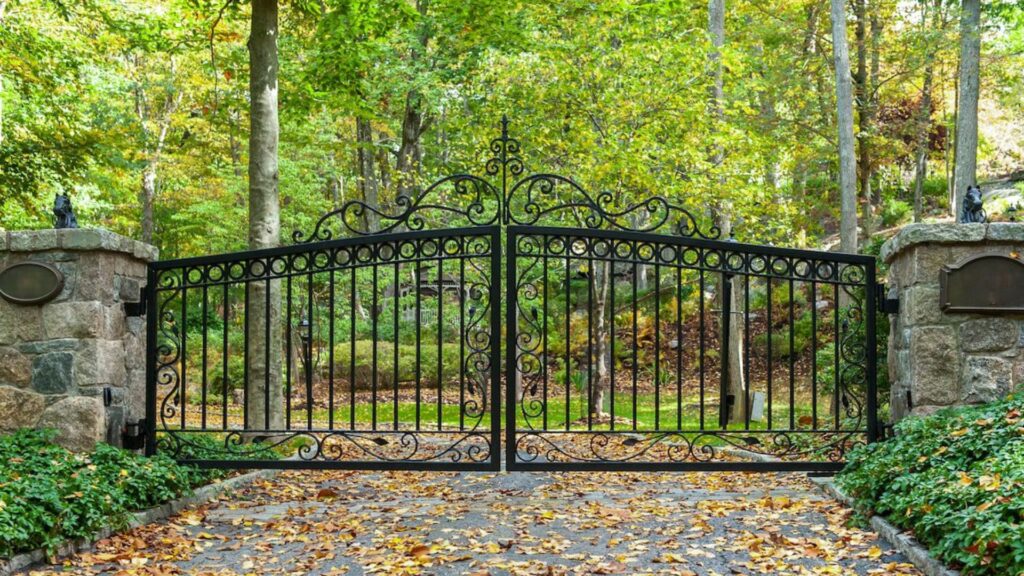
Maintenance Tips To Maximize Longevity
Proper maintenance is essential to ensure your driveway gate stands the test of time while continuing to look great and function efficiently. Whether you have a wooden, metal, or composite gate, taking a proactive approach to upkeep will not only maximize its lifespan but also save you from costly repairs down the line. Here’s a breakdown of key maintenance practices to keep your driveway gate in top shape:
Regular Cleaning
Routine cleaning is the foundation of driveway gate maintenance. Dirt, grime, and debris can accumulate on the surface over time, leading to premature wear, rust, or decay, depending on the material. Here’s how you can keep your gate clean:
- Metal Gates: Use a mild soap and water solution to remove dirt and grime. Avoid abrasive cleaners that could damage protective coatings or paint. After washing, dry the surface thoroughly to prevent moisture-related rusting.
- Wooden Gates: For wooden gates, cleaning is essential to prevent mold, mildew, or rot caused by New Zealand’s damp climate. A soft brush or sponge with soapy water is ideal for removing buildup without harming the wood. Always rinse with clean water and allow the gate to air-dry completely.
- Vinyl or Composite Gates: These materials are low-maintenance but can still accumulate dirt. A simple wipe-down with a cloth and mild detergent will do the trick.
Lubrication for Moving Parts
The hinges, sliders, and any other moving components of your driveway gate are crucial for its smooth operation. Without regular lubrication, these parts can become stiff, noisy, or even seize up entirely.
- Hinged Gates: Apply a high-quality lubricant, like WD-40 or a silicone-based spray, to all hinges at least twice a year. This prevents squeaking and ensures smooth movement.
- Sliding Gates: For sliding mechanisms, focus on the track and rollers. Clear away any dirt or debris from the track before applying lubricant to the rollers and guiding components. A little lubrication goes a long way, so avoid over-applying, as this could attract dust and grime.
- Automatic Gates: If your gate is motorized, check the manufacturer’s recommendations for lubricating motorized components. Often, a specialized grease or lubricant is required for gears and belts.
Painting and Sealing
Protecting your gate from New Zealand’s unpredictable weather conditions is critical, particularly in areas prone to rain, strong UV exposure, or coastal air with high salt content.
- Metal Gates: Regularly inspect the paint or powder coating for chips or scratches. Exposed metal is vulnerable to rust, so touch up damaged areas promptly with rust-inhibiting paint. In coastal areas, consider adding an extra layer of weatherproof coating for added protection against salt air.
- Wooden Gates: Wood needs extra care due to its susceptibility to moisture and sun damage. Apply a weather-resistant sealant or stain every 1-2 years to prevent warping, cracking, or rotting. Additionally, UV-blocking finishes can help preserve the wood’s natural color and prevent fading.
- Composite or Vinyl Gates: While these gates require less maintenance, you should inspect them periodically for cracks or surface damage. Protective coatings, while less critical, can still be applied to preserve their appearance.
Annual Checkups
Even with regular cleaning, lubrication, and painting, it’s essential to schedule a more in-depth inspection of your gate at least once a year. This allows you to identify and address minor issues before they escalate into major problems.
- Inspect for Structural Damage: Check for signs of wear and tear, such as cracks, loose hinges, or sagging gates. Wooden gates may develop splits or rot, while metal gates might show early signs of rust or corrosion.
- Examine Moving Components: Test the hinges, rollers, and tracks to ensure they operate smoothly without unusual noises or resistance. Pay extra attention to automatic gates, as motorized parts may wear out faster.
- Tighten Loose Fasteners: Screws, bolts, and brackets can loosen over time, especially in areas with frequent wind or vibrations. Use a wrench or screwdriver to secure any loose components.
- Professional Servicing: For automatic gates, consider hiring a professional technician for an annual tune-up. They can test the motor, electrical connections, and safety mechanisms to ensure everything is working correctly.
Why Maintenance Matters in New Zealand
New Zealand’s unique climate, with its mix of humid coastal areas and dry inland regions, can be tough on driveway gates. Rust, rot, and weathering are common challenges, but regular maintenance helps mitigate these issues. A well-maintained gate not only extends its lifespan but also ensures continued security, privacy, and aesthetic appeal for your property.
By committing to these simple yet effective maintenance practices, you’ll keep your driveway gate looking and functioning as good as new for years to come. Whether you opt for DIY care or professional assistance, the investment of time and effort is well worth it in the long run. Looking for an affordable, stylish, and secure driveway gate that fits your budget? Visit Fence and Gate Auckland Now to explore top-quality driveway gates, compare options, and find the best deals in New Zealand!
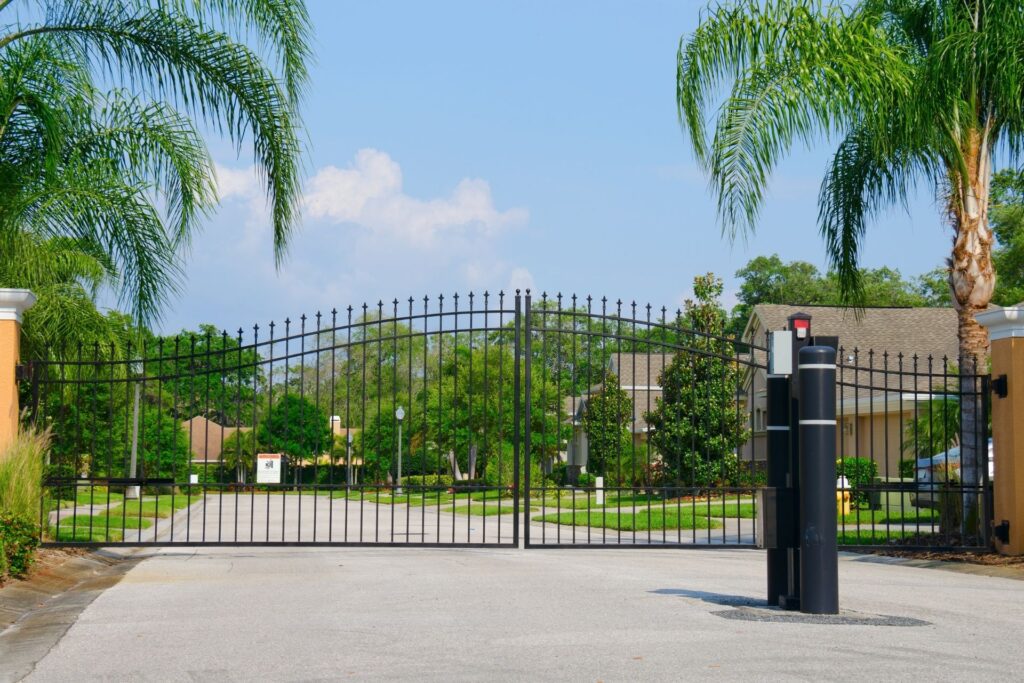
FAQs: About Cheap Driveway Gates NZ
What are the most affordable driveway gate options in New Zealand?
The most affordable driveway gates in NZ are typically manual swing gates made from lightweight materials like aluminum or vinyl. Sliding gates can also be cost-effective, especially for smaller driveways.
How much do cheap driveway gates cost in NZ?
Prices for driveway gates in NZ vary based on size, material, and design. On average, a basic manual gate can cost between $500 and $1,500, while automated gates start around $2,000 and go up depending on the features.
What materials are best for budget-friendly driveway gates?
Aluminum and vinyl are great options for affordable driveway gates, as they are lightweight, durable, and require minimal maintenance. Wooden gates can also be cost-effective, but they may require regular upkeep to maintain their appearance.
Are automatic gates more expensive than manual gates?
Yes, automatic gates are typically more expensive due to the motor, remote control system, and installation requirements. However, they provide added convenience and are often worth the investment for long-term use.
Can I install a driveway gate myself to save money?
Yes, DIY installation can save money if you have the right tools and skills. Swing gates are generally easier to install compared to sliding or automatic gates. However, for complex installations, hiring a professional is recommended.
Where can I buy affordable driveway gates in NZ?
Affordable driveway gates can be found at local suppliers, home improvement stores, and online marketplaces like Trade Me. Many suppliers also offer second-hand or discounted options to fit tighter budgets.
What should I consider when buying a cheap driveway gate?
Key considerations include your budget, driveway size and shape, preferred material, gate style (swing vs. sliding), and whether you want a manual or automatic option. It’s also important to factor in maintenance costs over time.
Do cheap driveway gates require a lot of maintenance?
Maintenance depends on the material. Aluminum and vinyl gates require minimal upkeep, while wooden gates need regular sealing or painting to protect them from weather damage. Steel gates may require periodic rust prevention treatments.
Are there any government regulations for installing driveway gates in NZ?
Some local councils in NZ may have regulations regarding gate height, placement, or motorized installations, especially if the gate opens onto public pathways. Always check with your local council before installation.
How can I ensure my driveway gate lasts longer?
Regular maintenance is key to extending your gate’s lifespan. Clean the gate periodically, lubricate hinges or sliding mechanisms, and protect materials like wood or steel with appropriate coatings. Annual inspections for wear and tear can prevent costly repairs.
Conclusion
In conclusion, investing in affordable driveway gates is a practical way to enhance your home’s security, privacy, and curb appeal without exceeding your budget. By carefully considering factors such as gate type, material, and functionality, you can find a solution that perfectly balances cost-effectiveness with quality and style. Take the time to research your options, compare quotes from local suppliers, and explore online marketplaces to ensure you get the best value for your money. Remember, the right driveway gate not only secures your property but also elevates its aesthetic appeal, making it a worthwhile addition to any home. If you’re ready to take the next step, check out our free guide or consult with a local supplier to find the perfect gate for your needs.
About the Author:
Mike Veail is a recognized digital marketing expert with over 6 years of experience in helping tradespeople and small businesses thrive online. A former quantity surveyor, Mike combines deep industry knowledge with hands-on expertise in SEO and Google Ads. His marketing strategies are tailored to the specific needs of the trades sector, helping businesses increase visibility and generate more leads through proven, ethical methods.
Mike has successfully partnered with numerous companies, establishing a track record of delivering measurable results. His work has been featured across various platforms that showcase his expertise in lead generation and online marketing for the trades sector.
Learn more about Mike's experience and services at https://theleadguy.online or follow him on social media:

